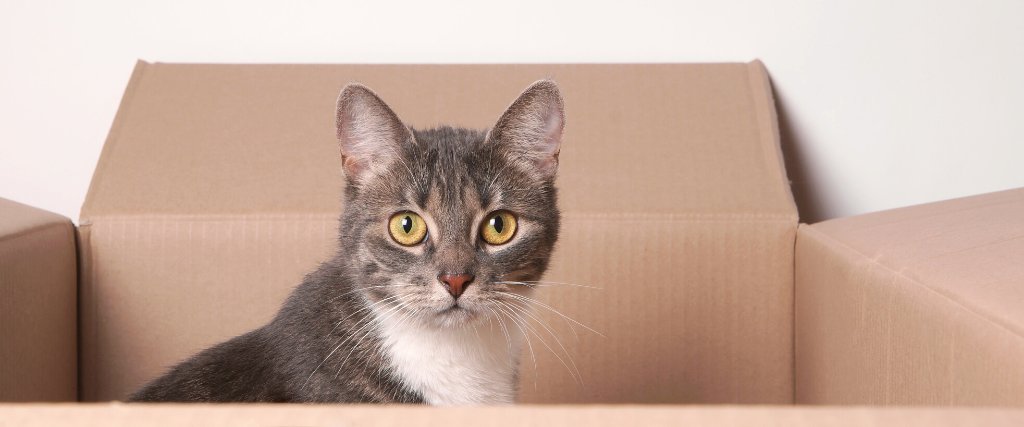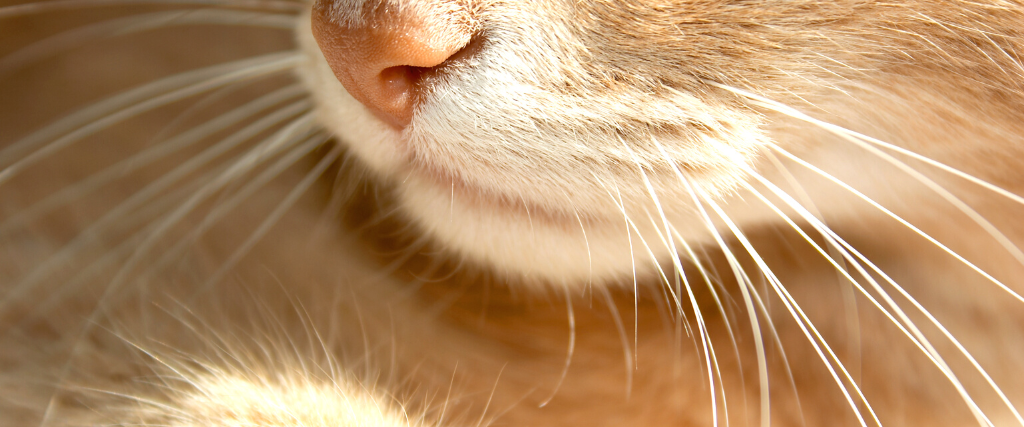Whether you're a new cat owner or have shared your home with feline family members for decades, you've undoubtedly had some questions. Even if you don't have cats, there could be things about them that you've always been curious about. Whatever the case may be, we're here to answer all of your most pressing questions. As veterinarians, we answer questions about these adorable (and often perplexing!) creatures every day. In this post, we'll be sharing our answers to several of the most commonly asked questions about cats. Let's dive right in!
1. Why Do Cats Purr?
Purring is a uniquely feline habit that mystifies even the most seasoned cat owners. No one knows for sure why a cat purrs, but it happens when the vocal cords vibrate in response to brain stimulation. Cats normally purr when they are happy, but sometimes sick or injured cats purr, too. For this reason, many experts believe the frequency of a cat's purr may aid in healing.
2. Can Cats Have Too Much Catnip?
Does your cat go crazy every time they catch a whiff of catnip? If so, you may have wondered if you could harm your cat by giving them too much. The good news is that this plant is not harmful to cats. It's not addictive, either. Feel free to let your feline friend indulge. Just keep an eye on them, and take the catnip away if they become agitated or nauseated.
3. What Are the Most Popular Cat Breeds?
The most popular cat breeds in the United States (in no particular order) include:
- Domestic Shorthair
- Maine Coon
- Persian
- Sphynx
- Ragdoll
- Abyssinian
- Devon Rex
- Scottish Fold
- Exotic
- British Shorthair
4. How Long Do Cats Live?
Cats live an average of 15 years. However, this varies depending on several factors, including overall health and diet. Obesity subtracts, on average, 1 to 2.5 years from a cat's life. And cats who stay inside live longer than those who are allowed to venture outdoors. Staying on top of wellness care is the best way to ensure that your feline friend gets to enjoy as many healthy, happy years by your side as possible. Sometimes, well-cared-for cats live for 20 years or longer.
5. Why Do Cats Leave Their Owners Dead Animals?
Waking up to a dead mouse in the middle of the floor isn't exactly pleasant, but leaving this type of "gift" is a loving gesture from your cat. While you provide plenty of food, your cat is still instinctively driven to hunt. Cats teach their kittens how to hunt in the wild, so your domesticated cat may think that bringing you a dead animal will help you learn how to hunt and survive. They may also be trying to share the rewards of their hunt with you. No matter how unpleasant you may find this particular habit, your cat brings you "gifts" because they love you, so you should never discipline your kitty for leaving you what they think is a wonderful present. Praise them for their successful hunt, clean up the mess and move on.
6. Why Do Cats Knead?
Kneading, which is also called "making biscuits," is an instinctive behavior that many cats keep from when they were kittens. Kittens knead their mother's mammary glands to stimulate milk production. It's a comforting activity and one that cats often engage in when they are sleepy or when spending time with their favorite people. Your cat may also knead blankets and other soft objects for similar reasons.

7. Why Do Cats Love Boxes?
In the wild, cats are ambush predators. This means that they catch their prey by stealthily stalking it and then pouncing when the moment is just right. A box is the perfect hiding spot to hide while waiting to ambush unsuspecting prey. As tiny predators, cats are also potential prey for larger animals like coyotes and foxes. Enclosed places like boxes provide safety. And, of course, cats are curious creatures who just like checking out everything that enters their home--including new boxes.
8. Are Male Cats Friendlier Than Females?
Male cats have a reputation for being friendlier than female cats. Many folks insist that males are more affectionate, too, while females tend to be more aloof. However, this largely comes down to personal experience. Cats all have unique personalities. Adopting a loveable cat who loves to snuggle isn't as easy as simply choosing a male. There are plenty of standoffish males and affectionate females out there!
9. Why Do Cats Dislike Water?
While some breeds -- including the Maine Coon, Bengal and Turkish Van -- don't mind water, most cats prefer staying dry. Domesticated cats descended from desert animals that hunted birds, mice and other land-based animals. Most of their water intake came from their prey, so modern cats' ancestors simply had no reason to go near water. Also, unlike other animals, cats do not have waterproof coats. When wet, their coat is extremely heavy, and it takes a long time to dry. This can put cats at risk of hypothermia in cooler climates.

10. Why Do Cats Have Whiskers?
A cat's whiskers are delicate sense organs that tell them what's going on around them. Cats also use their whiskers to determine their position in space, especially in dark and low-light situations. Your cat's whiskers can also let you know if your feline friend is nervous or frightened. Cats also have scent glands in the skin of the whisker area which is why they like to rub their cheeks on corners of furniture or walls. Because whiskers provide so much information, you should never pluck or cut them!
Final Thoughts
Cats are amazing, though often mystifying, creatures. If you have questions about your feline friend that are not answered here, we encourage you to contact us. As your cat's veterinarian, we're here to help you better understand your cat so you can give them the best, healthiest and happiest life possible. Please reach out to your primary care veterinarian today to schedule an appointment or learn more.

